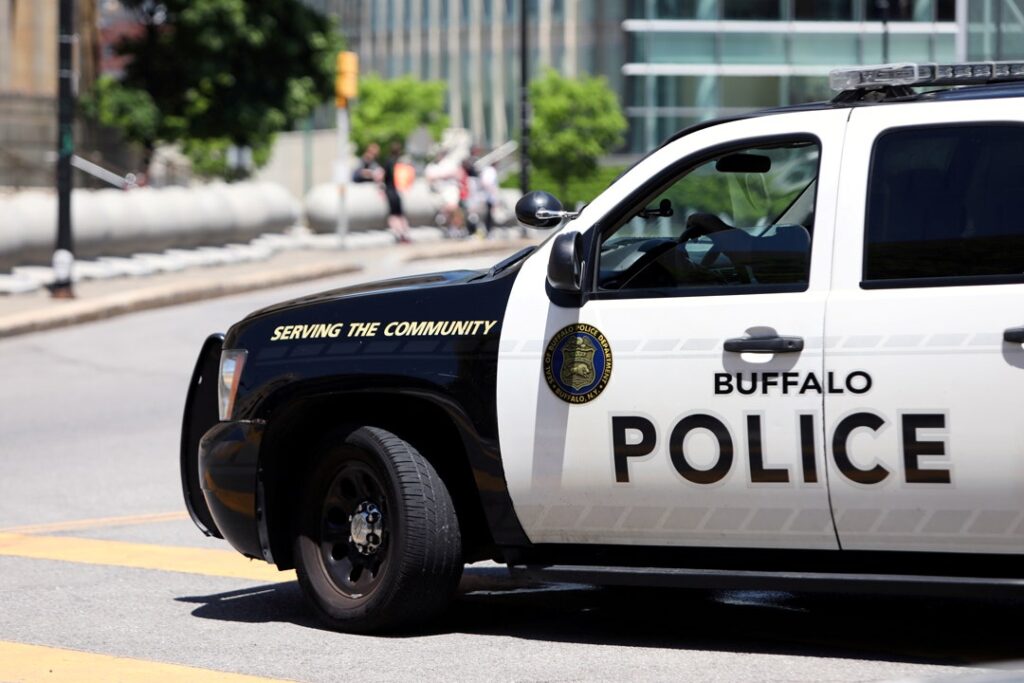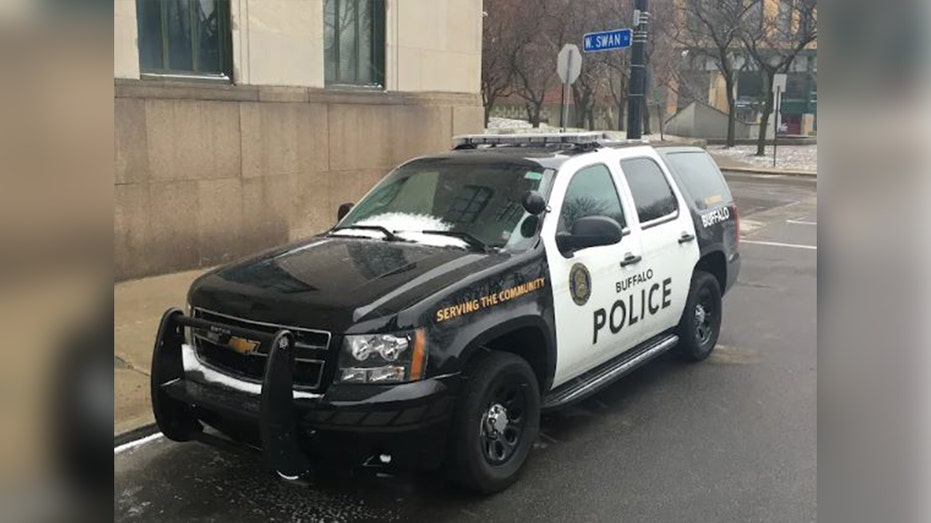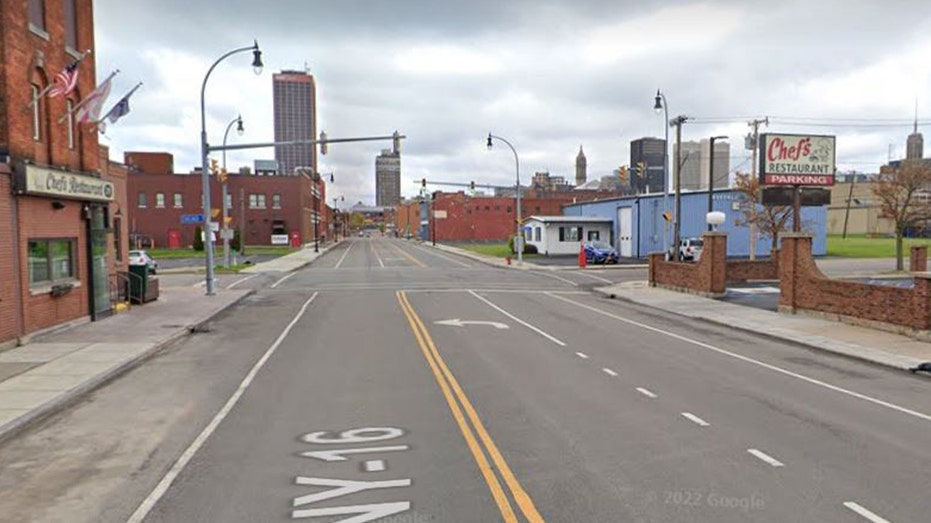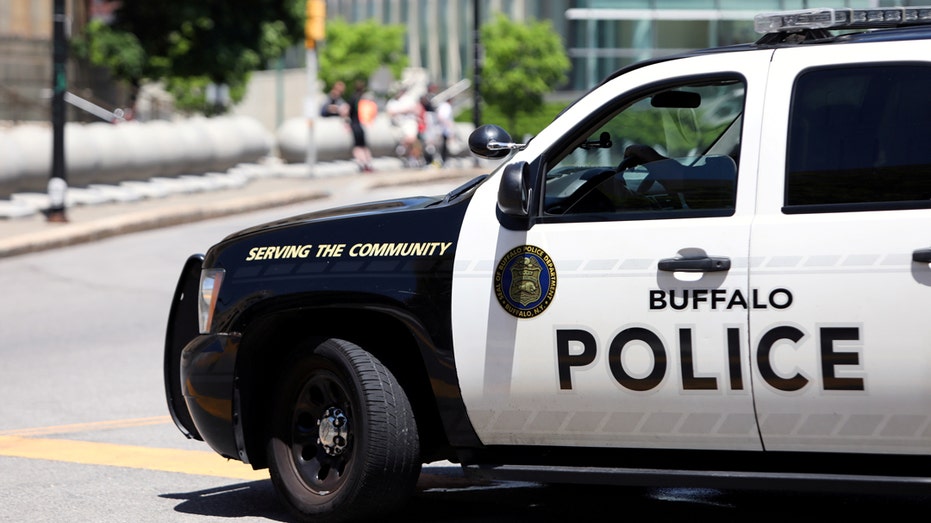
The Fox News contributor and former NYPD inspector joins « The Bottom Line » to discuss New York police officers giving shop owners their personal phone numbers to help fight shoplifting.
A New York man ticketed for telling off a police officer who he says almost hit pedestrians without his headlights on can proceed with his lawsuit against the Buffalo Police Department, an appeals court rules.
R. Anthony Rupp III, a civil rights attorney, called out « Turn on your lights, a—— » to Officer Todd McAlister in December 2016 after he and his wife saw the officer « rapidly approach » with no running lights on and nearly hit two women crossing the street, according to his initial lawsuit filed in March 2021.
A decision from the U.S. Court of Appeals last week reversed an earlier ruling by a Buffalo U.S. district judge who had dismissed Rupp’s case. Rupp’s statement, however profane, could be considered an « eminently reasonable » effort to prevent an accident, the higher court ruled.
‘SPEED RACER’ ACTOR’S $1M ESTATE TIED UP IN COURT AFTER HE DIED IN PLANE CRASH WITHOUT A WILL: DOCS

R. Anthony Rupp III named Officer Todd McAlister, Officer Nicholas Parisi, the commissioner of the Buffalo Police Department and the city of Buffalo in his lawsuit. (Google Maps / Fox News)
McAlister apparently did not share the same view as the court at the time of the interaction; he pulled over Rupp’s vehicle and told him that « you know you can be arrested for that, » according to court documents.
Rupp alleges that he reiterated to the officer that he almost caused an accident and noted that McAlister should not be driving without his headlights on after dark. McAlister then « got out of his vehicle and told Rupp he was detained, » according to the complaint.
3RD LAWSUIT AGAINST PANERA CLAIMS CAFFEINATED ‘CHARGED LEMONADE’ CAUSED ‘PERMANENT CARDIAC INJURIES’
Two other officers came to the scene, including Parisi, who is also named in the suit. Parisi refused to ticket McAlister for driving without headlights, Rupp said.
Instead, Rupp was issued a ticket for violating Buffalo’s noise prohibition, but the citation was later dismissed, court documents show.
A day after the incident, Rupp wrote a letter to the Buffalo Police Department’s commissioner to complain.

Rupp and his wife first saw McAlister’s car when they left Chef’s Restaurant. Rupp shouted at the officer after he nearly struck two women as they walked from a parking lot to the restaurant, according to the lawsuit. (Google Maps)
« I wrote that letter because I thought these guys needed more training, » Rupp said. « They needlessly provoked an incident. They were in the wrong. They confronted me. They used the power of their badge to cite me. »
Now, Rupp is suing the police department, the two officers and the city of Buffalo. He told the Buffalo News that he is only seeking $1 and an acknowledgment that the officers acted inappropriately.
PROMINENT NYC REAL ESTATE DEVELOPER AND TOP EXECS CHARGED IN $86M FRAUD SCHEME
Although he was incensed, Rupp told the outlet that he didn’t initially intend to seek legal action. He changed his mind, however, when McAlister and Parisi were involved in the arrest of an unarmed man who died of an asthma attack while in handcuffs two months later.
A 2017 investigation into the death of Wardel « Meech » Davis found insufficient evidence to criminally charge the two officers for the incident.
« When I saw that it was the same two cops who were involved in my incident, when they retaliated against me because I [angered] them and Meech Davis [angered] them by resisting arrest, I went forward with a lawsuit that I never would have brought, » Rupp told the Buffalo News.

R. Anthony Rupp III is suing the Buffalo Police Department. (Lindsay DeDario / Reuters Photos)
Rupp is accusing the officers of violating his First Amendment rights and his Fourth and Fourteenth Amendment rights protecting against false arrests. He also argues that the city of Buffalo insufficiently trained these officers and failed to intervene.
In court documents, lawyers representing Buffalo argued that Rupp’s legal claims were unsupported. A U.S. district judge agreed, ruling in March 2021 that the officers had sufficient probable cause to ticket Rupp: « Given both the volume and nature of Rupp’s yell in the presence of bystanders, a reasonable person of normal sensitivities could be annoyed and have their quiet, comfort, and repose disturbed, » the ruling read.
CLICK HERE TO GET THE FOX NEWS APP
But in its Jan. 31 decision, the U.S. Court of Appeals wrote that a « rational juror » could easily view Rupp’s words as an « attempt to avert a possible accident. » If all five words he had uttered were expletives, they said, the shout might reasonably be seen as « unreasonable noise. »
The defendants’ attorneys could not immediately be reached for comment.
